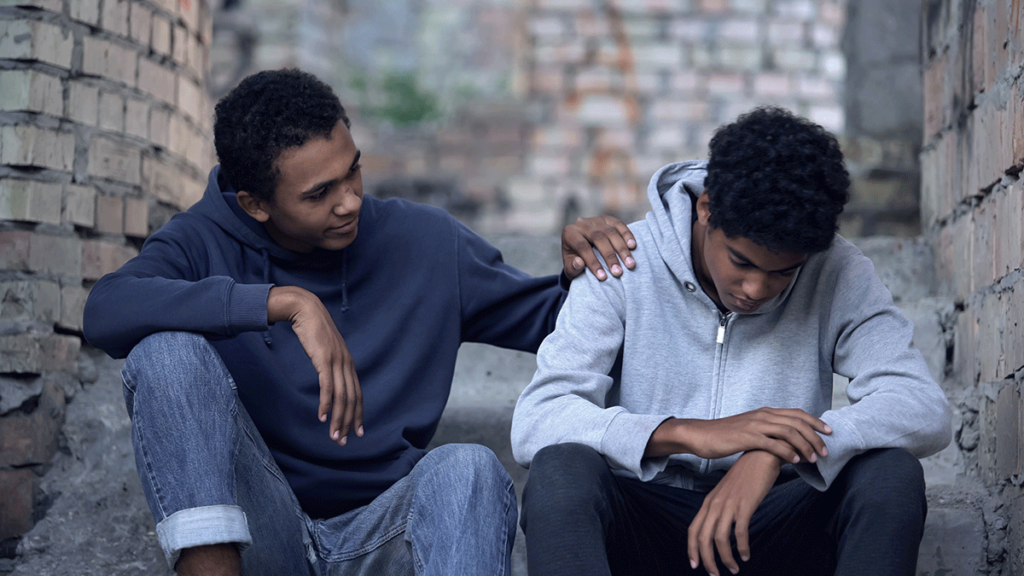Cocaine affects the motivation and reward circuitry in the brain, flooding it with high levels of dopamine. With regular use, people become dependent upon cocaine to feel “normal.” Long-term cocaine abuse can permanently alter the brain’s chemical makeup. Early intervention with cocaine rehab is the best way to ensure that a friend or loved one can break the cycle of cocaine addiction. But what are the signs your friend may need cocaine rehab?
At Ashwood Recovery in Idaho, we know how dangerous cocaine addiction can be and how difficult it is to overcome it alone. We have the tools to help spot signs your loved one needs cocaine rehab, help them successfully overcome cocaine addiction, and find lasting recovery. Call 888.341.3607 or contact our team online to learn more about our cocaine addiction rehab program.
Signs Your Loved One Needs Cocaine Rehab
Cocaine is a powerful stimulant classified as a Schedule II controlled substance, meaning it has a high potential for abuse that can lead to addiction. Usually snorted, smoked, or injected, cocaine produces a short-lived but intense euphoria, increased energy, and a sense of heightened alertness.
3 Primary Signs Someone Needs Cocaine Rehab
Three common signs of cocaine addiction include the following:
- Changes in behavior – Sudden mood swings, increased irritability, aggression, withdrawal from friends and family, increased secrecy, and prolonged or unexplained disappearances
- Changes in appearance – Significant weight loss, poor hygiene and grooming, and lack of interest in personal appearance
- Drug paraphernalia – The presence of straws, pipes, small baggies, needles, or burnt spoons
It isn’t always easy to identify cocaine addiction, especially in the early stages. Most people with addiction are good at hiding it initially. However, as the level of addiction worsens, it becomes easier to identify.
Other Signs to Watch Out For
Other typical signs can be:
- Relationship problems – Strained relationships with family, friends, or colleagues or difficulty maintaining healthy connections
- Financial issues – Sudden requests for money, unexplained financial losses, selling possessions, or stealing
- Health concerns – Frequent nosebleeds, frequent headaches, respiratory problems, or more severe issues including heart attack, seizures, and stroke
- Neglect of responsibilities – Declining performance at work or school and neglecting personal or professional responsibilities
- Drug paraphernalia – The presence of straws, pipes, small baggies, needles, or burnt spoons
Most people with cocaine addiction are in denial and will be defensive if confronted. If you suspect your friend or loved one is abusing cocaine, it is best to approach them in a non-judgmental way while expressing your concern for their well-being. Cocaine has a high potential for overdose, so being able to recognize the signs of abuse or addiction can be life-saving.
What to Expect from Cocaine Rehab
Often, the fear of the unknown is a barrier to seeking help. Having an understanding of what to expect from cocaine rehab can help alleviate fears and set realistic expectations.
Individuals with severe or long-term cocaine addiction will be best served with inpatient rehab, where they can receive 24-hour supervision and support. For those with less severe addiction or who cannot step away from everyday life for inpatient treatment, there are other options, including partial hospitalization programs (PHP) and intensive outpatient programs (IOP).
Ashwood Recovery offers comprehensive outpatient cocaine rehab. Addiction treatment begins with a thorough assessment and evaluation to determine the best course of treatment, followed by detox. Following detox, the specific duration of treatment depends on the level of care. However, standard elements of cocaine rehab include:
- Individual therapy
- Group therapy
- Family therapy
- 12-step support groups
- Education about addiction and its impacts
- Relapse prevention therapy
- Aftercare planning
Outpatient cocaine rehab allows for flexible treatment options so that patients can tend to the responsibilities of daily life while receiving treatment. The effectiveness of rehab is mainly dependent upon a patient’s commitment to and participation in the process.
Enroll Your Loved One in Outpatient Cocaine Rehab at Ashwood Recovery
When your loved one is ready to receive the help they need and deserve, Ashwood Recovery is here to help. Reach out online or call 888.341.3607 to learn more about outpatient cocaine rehab in Idaho.

